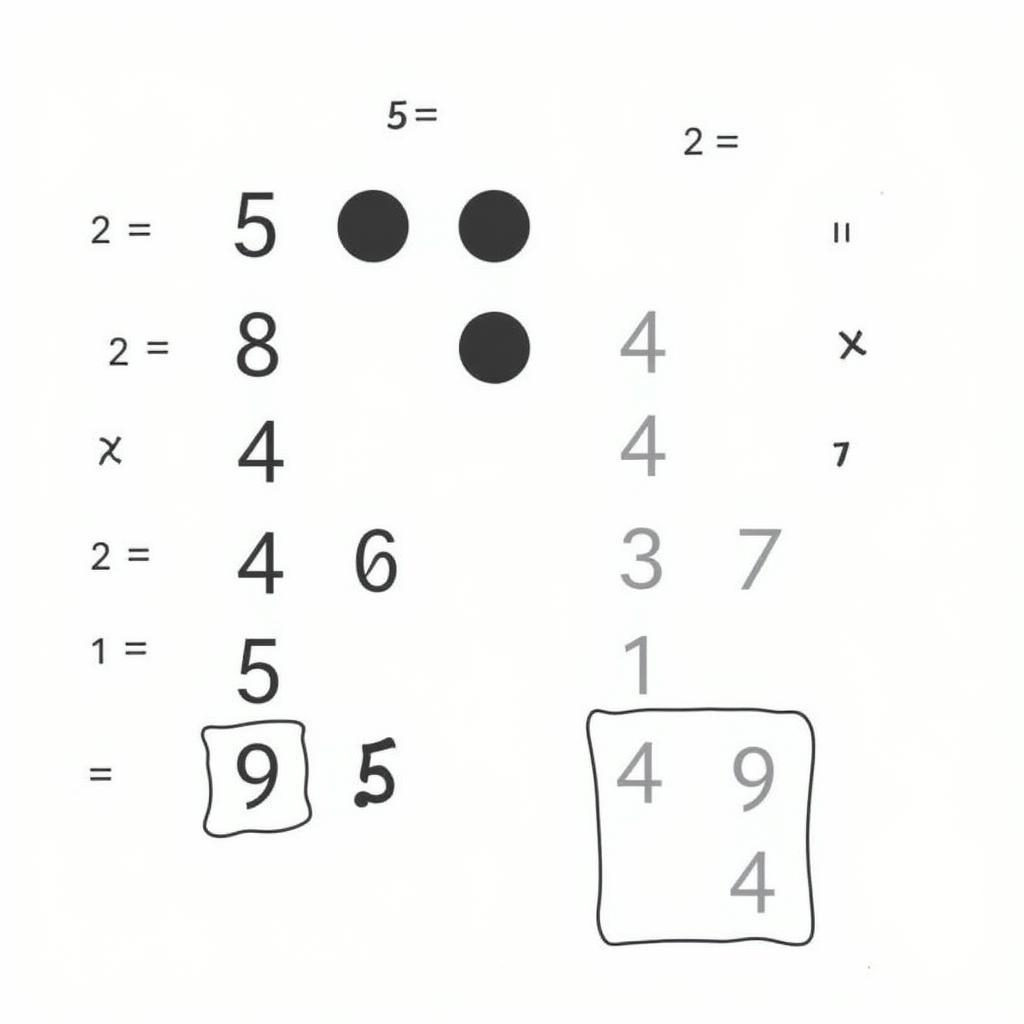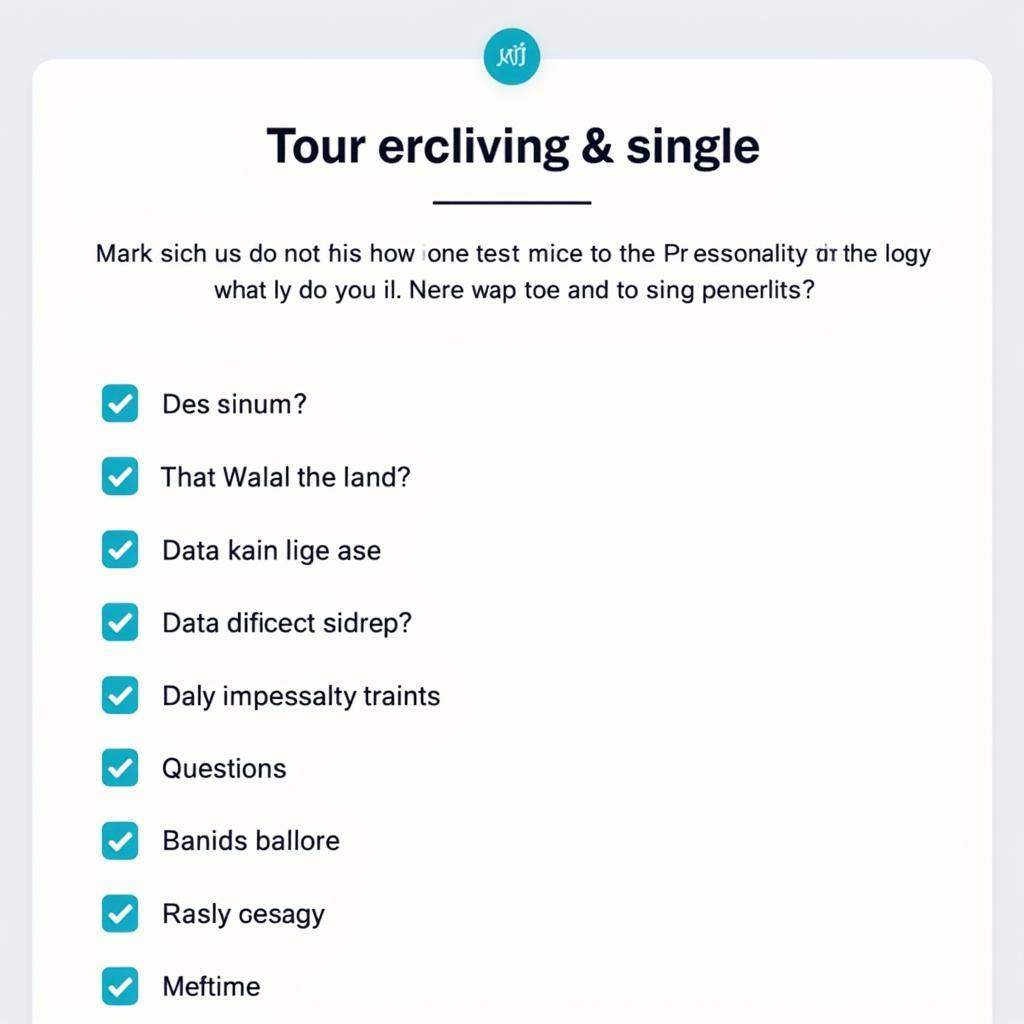Psychology Diagnostic Tools are standardized instruments used by mental health professionals to assess and evaluate various aspects of an individual’s psychological functioning. These tools play a crucial role in the diagnosis, treatment planning, and monitoring of mental health conditions. This comprehensive guide will delve into the different types of psychology diagnostic tools, their applications, and the importance of their ethical and responsible use.
Exploring Different Types of Psychology Diagnostic Tools
Clinical Interviews: The cornerstone of psychological assessment, clinical interviews involve a structured or semi-structured conversation between the clinician and the individual. It aims to gather information about the individual’s history, symptoms, and concerns.
Psychological Tests: These standardized instruments are designed to measure specific psychological constructs like personality, intelligence, and cognitive abilities. Some commonly used psychological tests include:
-
Intelligence Tests: Such as the Wechsler Adult Intelligence Scale (WAIS) and the Stanford-Binet Intelligence Scales, measure cognitive abilities like verbal comprehension, perceptual reasoning, working memory, and processing speed.
 Example of an intelligence test item
Example of an intelligence test item -
Personality Tests: These tools, including the Minnesota Multiphasic Personality Inventory (MMPI) and the Myers-Briggs Type Indicator (MBTI), assess personality traits, emotional states, and interpersonal styles.
 Personality test with multiple-choice questions
Personality test with multiple-choice questions -
Neuropsychological Tests: These specialized assessments, like the Halstead-Reitan Neuropsychological Battery and the Luria-Nebraska Neuropsychological Battery, examine cognitive functions to identify potential neurological impairments.
 Neuropsychologist administering a test to a patient
Neuropsychologist administering a test to a patient
Behavioral Assessments: Unlike self-report measures, behavioral assessments focus on directly observing and recording an individual’s behavior in specific settings. This method is particularly useful for children and individuals who have difficulty expressing themselves verbally.
Physiological Measures: These tools measure physiological responses, such as heart rate, blood pressure, and brain activity, to assess emotional and psychological states. Examples include electroencephalography (EEG), electrocardiography (EKG), and galvanic skin response (GSR).
The Importance of Ethical Considerations
The use of psychology diagnostic tools demands strict adherence to ethical guidelines.
- Confidentiality: Maintaining the confidentiality of test results is paramount.
- Informed Consent: Individuals being assessed must be fully informed about the purpose, procedures, and potential uses of the assessment.
- Competent Administration: Only qualified and trained professionals should administer and interpret psychological tests.
How to Choose the Right Psychology Diagnostic Tool
Selecting appropriate assessment tools is crucial for accurate diagnosis and effective treatment planning. Factors to consider include:
- The individual’s age, developmental level, and cultural background.
- The specific referral question or reason for assessment.
- The psychometric properties of the tool, including its reliability and validity.
Benefits of Utilizing Psychology Diagnostic Tools
- Objective Assessment: Standardized tests provide a more objective assessment compared to subjective observations.
- Early Identification: These tools help identify potential mental health concerns early on, allowing for timely interventions.
- Treatment Planning: Assessment results guide clinicians in developing individualized treatment plans.
- Progress Monitoring: Diagnostic tools can track an individual’s progress over time and assess the effectiveness of interventions.
“Accurate diagnosis is the foundation for effective treatment in mental health. Utilizing a multi-faceted approach that incorporates various psychology diagnostic tools is key to obtaining a comprehensive understanding of an individual’s needs.” – Dr. Emily Carter, Licensed Clinical Psychologist.
Conclusion
Psychology diagnostic tools are indispensable instruments in the field of mental health. They provide valuable insights into an individual’s psychological functioning, aiding in diagnosis, treatment planning, and progress monitoring. If you are experiencing mental health concerns, seeking the guidance of a qualified mental health professional who utilizes these tools ethically and effectively is crucial for your well-being.
Connect with the experts at CARW Workshop for any assistance or inquiries.
Phone Number: +1 (641) 206-8880
Office Address: 4 Villa Wy, Shoshoni, Wyoming, United States
Frequently Asked Questions
1. How accurate are psychology diagnostic tools?
The accuracy of these tools depends on several factors, including the tool’s psychometric properties, the clinician’s expertise, and the individual’s cooperation during the assessment.
2. Are online psychology tests reliable?
While some online tests can provide general insights, it’s important to note that not all online assessments are created equal. It’s best to rely on standardized tests administered and interpreted by qualified professionals.
3. What is the difference between a psychologist and a psychiatrist?
Both professions work in the field of mental health. Psychologists typically hold a doctoral degree (Ph.D. or Psy.D.) and specialize in therapy and assessment. Psychiatrists are medical doctors (M.D. or D.O.) who can prescribe medication and often focus on the biological aspects of mental health.
4. How long does a psychological assessment take?
The duration of an assessment can vary depending on the complexity of the referral question and the specific tools used. It can range from a single session to multiple appointments.
5. Can psychology diagnostic tools be used for children?
Yes, there are specific tools designed for assessing children, taking into account their developmental stage and age-appropriate norms.
6. Are there cultural considerations in psychological assessment?
Cultural background can significantly influence an individual’s responses and behaviors. Clinicians need to be sensitive to cultural factors and consider them during the assessment and interpretation phases.
7. What should I do if I disagree with the results of a psychological assessment?
It’s essential to discuss any concerns or disagreements with the clinician who conducted the assessment. They can provide further clarification, explore alternative interpretations, or recommend additional assessments if needed.








One Response